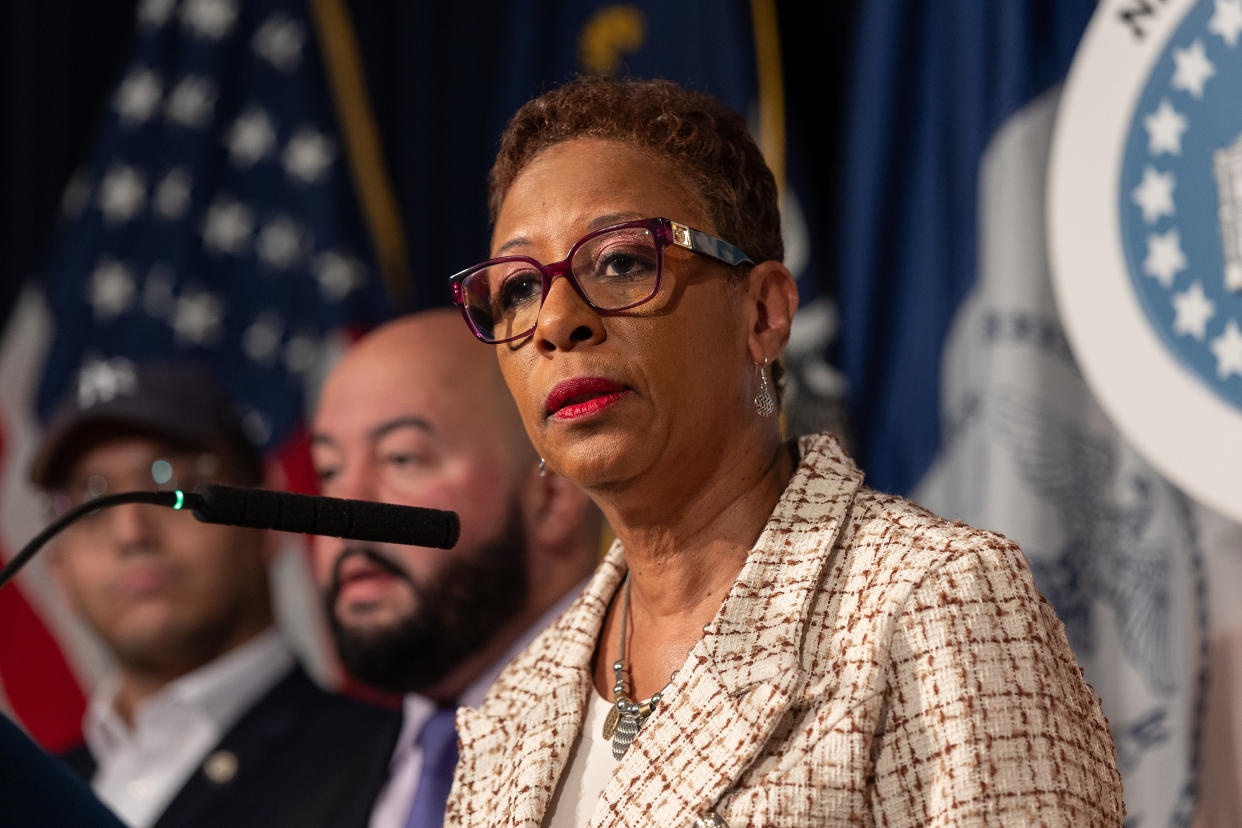NYC Council votes to expand ‘advice-and-consent’ oversight of mayoral hires over Adams objections

NEW YORK — The City Council voted by a wide margin Thursday to expand its ability to block top mayoral hires, teeing up another potential veto battle with Mayor Eric Adams, whose team has sharply criticized the move as a power grab that’d hamper municipal government operations.
The hot-button issue relates to “advice-and-consent,” the process that requires the mayor to secure the Council’s approval before making hires for certain top city government posts. As it currently stands, only a handful commissioner-level posts, including the corporation counsel, need to undergo advice-and-consent.
But a bill passed by the Council on Thursday — in a 46-4 vote — would add another 20 agency commissioners to the list of positions subjected to advice-and-consent.
The posts that previously didn’t have to undergo advice-and-consent that would under the legislation include everything from the commissioners of Sanitation, Parks and Buildings to the heads of Social Services and Children’s Services.
In a press conference before the vote, Council Speaker Adrienne Adams, who authored the bill, said it is about increasing government transparency, ensuring candidate quality and protecting against corruption.
“It incentivizes the nomination of qualified appointees who are accountable to New Yorkers and the public interest, not political loyalty or patronage,” she told reporters. “Advice-and-consent is a safeguard against … a Tammany Hall-like environment, where commissioner positions are doled out simply because of their political allegiance to one person or another.”
The speaker’s reference to Tammany Hall, the infamously corrupt organization that controlled New York politics in the 19th century, comes after the mayor and his advisers made the case in a press conference Tuesday that it’s actually the Council’s advice-and-consent expansion that would foster a Tammany-like process around commissioner appointments.
In the news conference, Lisa Zornberg, the mayor’s chief counsel, said that’s because the “deeply misguided” bill would tie the mayor’s hands from staffing city agencies and politicize the appointment process by requiring consent from a majority of the Council’s 51 members.
The mayor hasn’t said whether he’ll veto the bill. Spokespeople for him did not immediately return requests for comment after Thursday’s vote in the Council.
Since taking office in January 2022, the mayor has used his veto pen several times, though, including in trying to block bills passed by the Council expanding housing voucher access, banning solitary confinement in city jails and implementing more rigorous reporting requirements on NYPD officers. In each of those instances, the Council responded by overriding the mayor’s vetoes, forcing the bills into laws over his objections.
At the pre-vote press conference, the speaker said her Democratic Council majority is ready to override the mayor again on the advice-and-consent issue should he pick the veto route.
“In the unfortunate circumstance that it is vetoed, the Council will proceed as we normally have with past vetoes with this administration,” she said.
The veto issue aside, if the speaker’s bill ends up going into law, the advice-and-consent expansion cannot be officially implemented before New York City residents vote on the matter via a ballot referendum. The question has to be approved via referendum because it involves amending the City Charter, the local constitution.
Council Democrats have said they’re aiming to get the advice-and-consent question onto this November’s general election ballot, though that may be preempted by a separate charter revision effort initiated by the mayor.
_____


